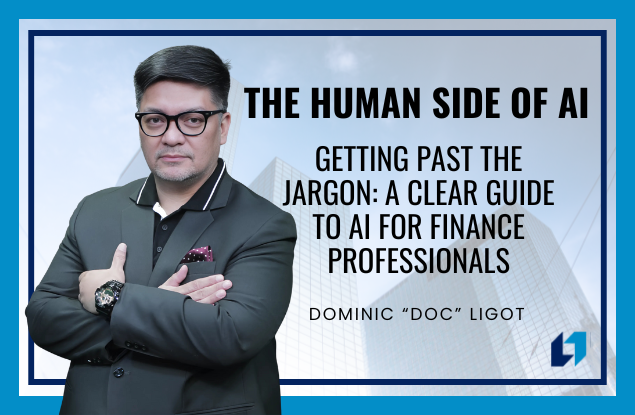Attend any AI conference today, and you’ll hear familiar tropes: “AI isn’t new,” “there are many kinds of AI,” or “Generative AI is the big trend now.” These phrases can sound more like buzzwords than insight, leaving professionals, especially outside tech, confused about what AI really is and why it matters.
Yet for finance leaders, investors, and professionals, clarity is essential. AI is no longer a niche technology. It underpins markets, compliance tools, customer engagement, and even investment strategies. Understanding the distinctions within AI can cut through the noise and reveal both the opportunities and the risks.
Generative vs. Discriminative AI
At its core, AI falls into two broad categories: generative and discriminative models.
Generative AI (GenAI) is designed to create. These systems generate text, images, music, or code, mimicking the patterns of data they’ve been trained on. Examples include ChatGPT, Gemini, Claude, image generators like Midjourney, and newer tools such as Udio for music or ElevenLabs for synthetic voices. In finance, this translates into capabilities like auto-generated research summaries, personalized client reports, and even synthetic data for stress-testing models.
Discriminative AI, in contrast, is about classification. It distinguishes between types of data and sorts them into categories. Recommender systems, such as those powering Netflix, YouTube, or Google Search, are classic examples. In finance, discriminative AI drives fraud detection, credit scoring, and personalized investment recommendations, by identifying patterns in transactions or user behavior.
The Engine: Machine Learning
Both types of AI rely on machine learning (ML), where algorithms learn from data and improve with exposure.
- Supervised learning: Models trained on labeled data, used for tasks like forecasting sales or identifying risk factors.
- Unsupervised learning: Algorithms that find hidden patterns, ideal for segmenting customer groups or detecting anomalies in trading data.
- Reinforcement learning: Agents that learn by trial and error, powering advances from AlphaGo to portfolio-optimizing algorithms.
Increasingly, financial firms are pairing these with newer approaches like Prompt Engineering, the craft of designing effective inputs for generative AI, and Agentic AI, where autonomous AI agents handle multi-step processes such as document analysis, compliance checks, or even trade execution.
Data Science: The Broader Discipline
AI sits within the wider discipline of data science, which combines statistical methods, computational tools, and domain expertise. Data science provides the foundation for building AI models, while analytics bridges the gap by helping humans interpret and act on AI outputs.
For finance professionals, this means AI isn’t replacing data-driven decision-making, it’s accelerating it. A data scientist may build the fraud detection model, but an AI system can monitor millions of transactions in real time, flagging suspicious activity instantly.
AI as a Mainstream Skill
What makes today different is accessibility. Generative AI platforms now allow anyone to use AI without coding skills. This democratization means AI literacy is becoming as essential on a résumé as Excel once was. Professionals who understand how to apply AI, whether through prompting or overseeing agentic workflows, will hold an edge in tomorrow’s job market.
For finance, this mainstreaming of AI opens the door to new efficiencies and business models. But it also requires critical thinking: AI systems amplify biases if not carefully monitored, and regulators are already scrutinizing their risks.
Cutting Through the Hype
AI doesn’t need to be an intimidating buzzword cloud. By understanding the key distinctions, generative vs. discriminative models, the role of machine learning, and the rise of new practices like prompt engineering and agentic AI, finance professionals can focus on what matters: how these technologies shape risk, opportunity, and competitive advantage.
AI is no longer optional. It’s a baseline competency, and those who master it will be best positioned to navigate the next era of financial innovation.
Dominic “Doc” Ligot is one of the leading voices in AI in the Philippines. Doc has been extensively cited in local and global media outlets including The Economist, South China Morning Post, Washington Post, and Agence France Presse. His award-winning work has been recognized and published by prestigious organizations such as NASA, Data.org, Digital Public Goods Alliance, the Group on Earth Observations (GEO), the United Nations Development Programme (UNDP), the World Health Organization (WHO), and UNICEF.
If you need guidance or training in maximizing AI for your career or business, reach out to Doc via https://docligot.com.
![]()



